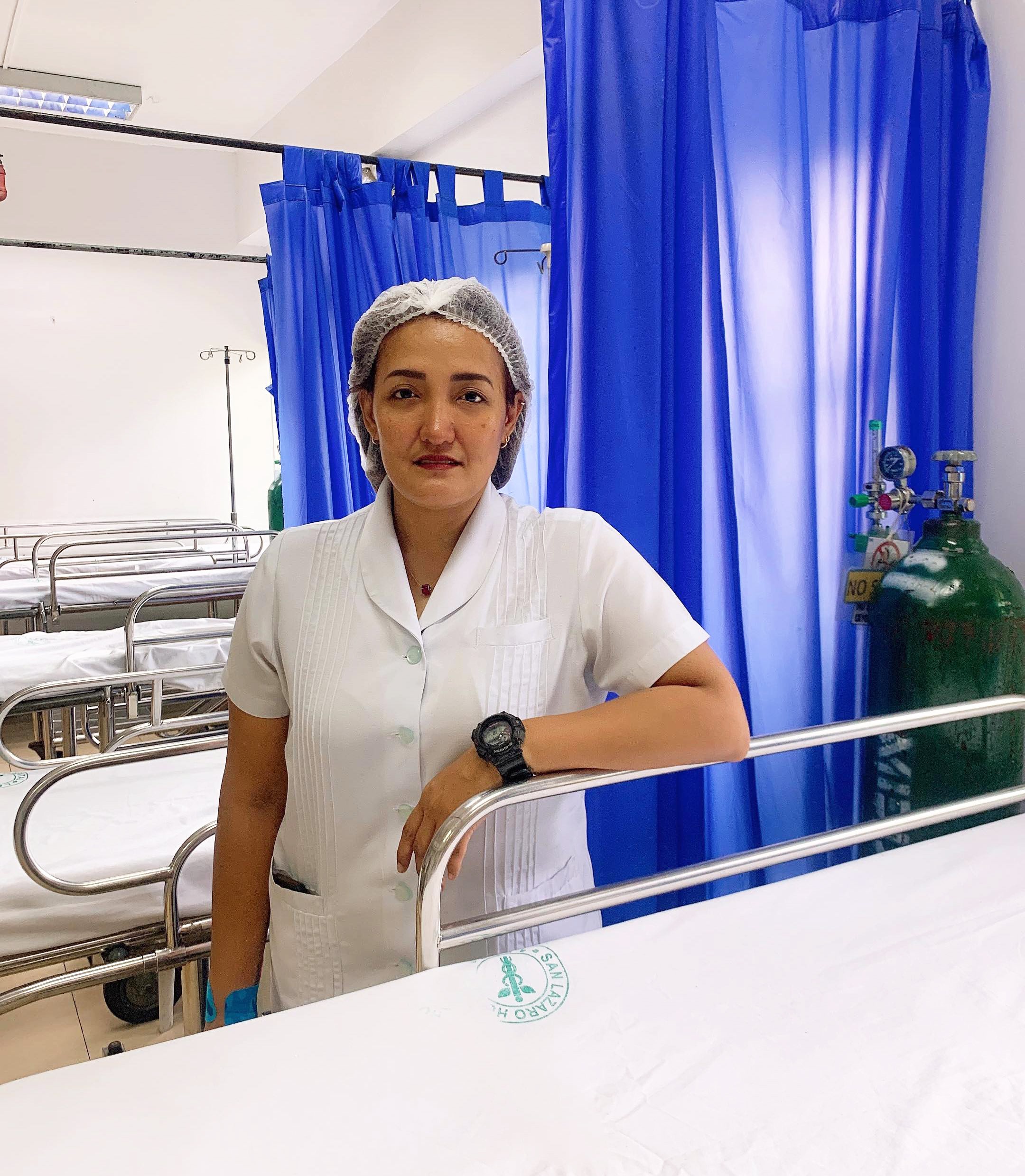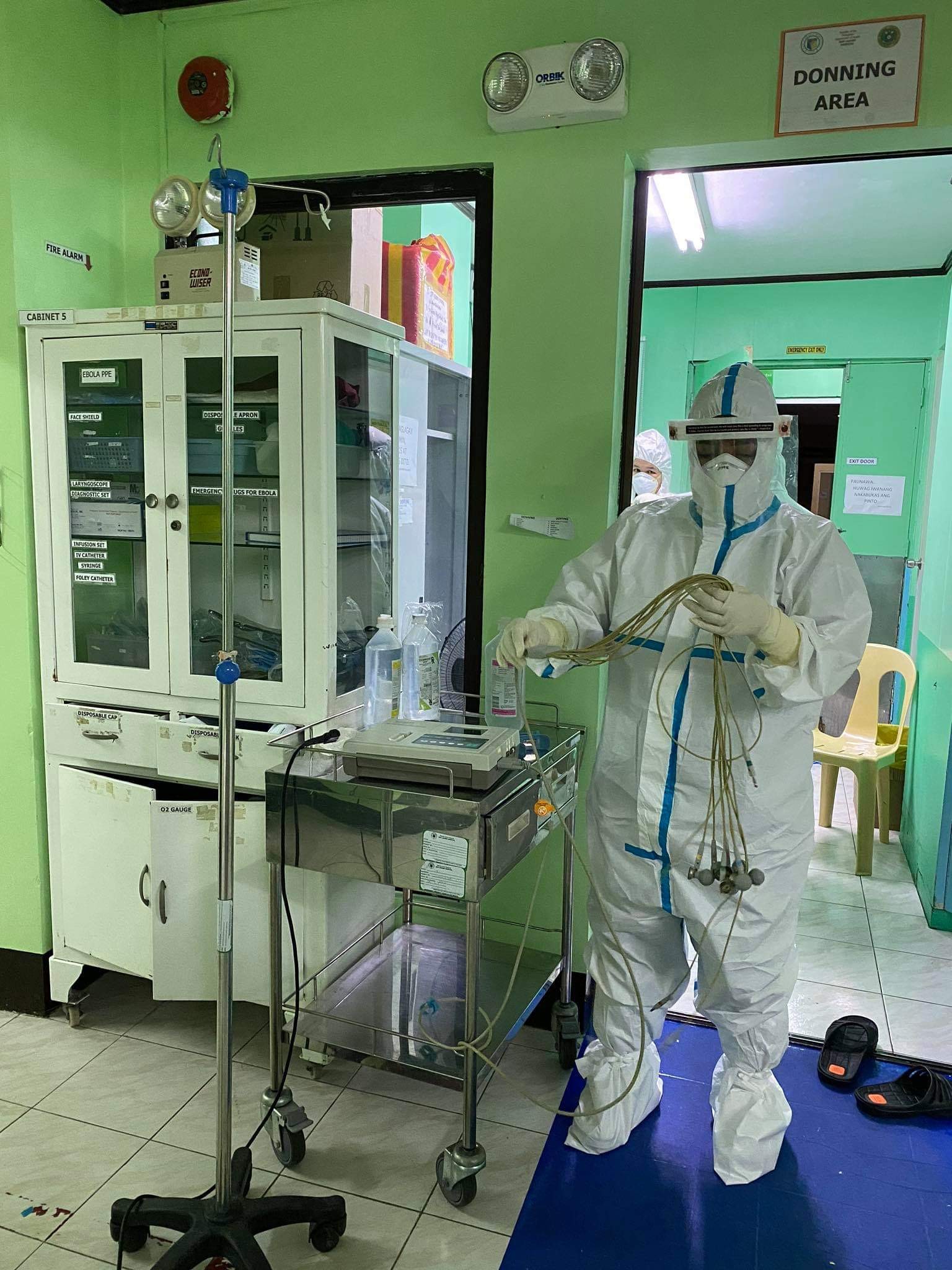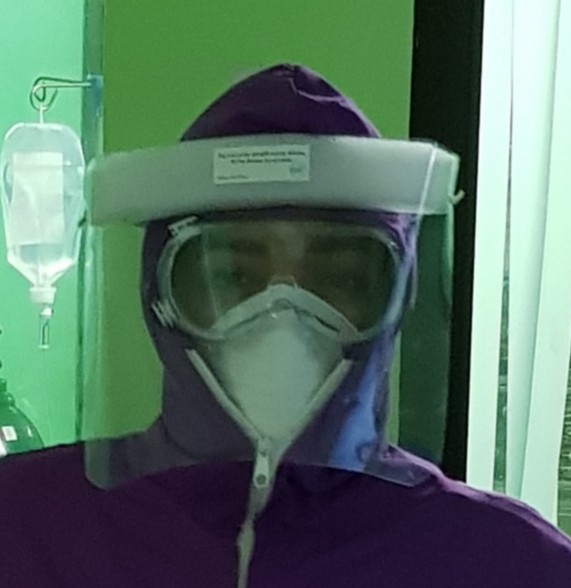
I have been a nurse for 15 years. It seems like not so long ago when I first started to work at San Lazaro Hospital. Most nurses who have plans to work overseas want to get into a general hospital to get the kind of work experience that foreign companies require. There is a great demand for our profession abroad with an opportunity to earn more than 10 times of what we earn here.
Fifteen years of service as a nurse made me look back on how it was when I started my profession. I remember looking at my new colleagues at San Lazaro Hospital, wearing their respectable and puritan white uniforms. It was a proud moment for me because finally I was working as a licensed nurse. The excitement was soon replaced by the workload that demanded going beyond my responsibilities. Many times, I would dig into my own pocket to provide for a less-fortunate patient. Other nurses would do the same.
No job is easy. More so if you are a nurse looking pristine in your white uniform with a white cap while dodging unpleasant discharges of patients. Or while dodging the kicks of flailing kids during IV insertion — and if you miss the vein on your first attempt, you’re met with disapproving stares from the kid’s parents.
No job is easy. More so if you’re a nurse with the endless struggle of trying to find energy to finish your shift because of the constant understaffing. More so if you help find ways to meet the patients’ needs due to insufficient medicine, supply and equipment.
No job is easy. More so when some people even assume we are not worthy to receive salaries and wages from the taxpayers' money. More so when we have to work during the holiday season, while other families are complete celebrating the occasion but not ours.
All these paled in comparison when the health pandemic caused by COVID-19 became a reality in the country.
Hearing the news about Wuhan, China getting a new type of viral infection, we were worried that if this was not contained, our hospital that specializes in infectious and communicable diseases would for sure be the first one to face it. We were right, as the first ever case of COVID-19 in the Philippines was brought to San Lazaro Hospital.

In the earlier part of the pandemic, we struggled on the shortage of appropriate PPEs due to the endless system of procurement and paperwork that made it difficult to answer our needs immediately despite the government’s claim that it was funded. As the number of COVID-19 patients increased, we wondered if the capacity of our facility was enough, if it was even designed to contain the virus from spreading to us and to others. We even resorted to call for donations to save us, and it really did. Without these donors, we honestly would not be able to survive this day.
Then we heard the news of the Bayanihan Act, a futile promise of additional compensation for the COVID-19 warriors. When we finally received such compensation, we were teary-eyed, not because of joy but because of self-pity. Pitying ourselves that our sacrifices were only worth that little, even our compensation was subjected to taxation.
“ We wonder if the white cap or the pristine uniform is the true symbol of a nurse, or is it the sweaty and stained scrubs and dirty worn-out shoes that can tell a story of how hard the nurse has worked to deliver the so-called quality health care to patients. ”
And yet the situation got worse, with the provision for the Nurse 1 entry-level salary grade increase in the Philippine Nursing Act of 2002. Finally, it was implemented but with the so-called "unavoidable consequence of compression of the nursing position" that ended with the dissolution of the highest nursing position, the Nurse 7. The dissolution of Nurse 7 was an added insult to our injuries because it deprived us of a salary increase. That with just one circular, our opportunity for a better salary grade was snatched away.
“ We took the oath that we would take care of our patients but we never thought it would be more like a suicide job, with the government thinking we are robots or immortals and could never be a casualty. I am human and I feel pain, fatigue and frustration. ”
So this time, self-pity turned into anger — for making a fool out of us, for putting our lives on the line when what some government officials all seem to see are desperate robots trying to make a living. We were even told that we should be thankful because we are lucky to still have our jobs while others lost theirs due to the pandemic. But the fact still remains that we have to be brave going out and working in COVID wards while others stay at home to be safe.

Now we wonder if the white cap or the pristine uniform is the true symbol of a nurse, or is it the sweaty and stained scrubs and dirty worn-out shoes that can tell a story of how hard the nurse has worked to deliver the so-called quality health care to patients. We put our lives in danger of getting infected. We also think of our loved ones left behind at home. We also think of how we deprived ourselves with hugs and kisses from our loved ones because we have been exposed to patients in the hospital even if we don PPEs as we perform our duty.
We took the oath that we would take care of our patients but we never thought it would be more like a suicide job, with the government thinking we are robots or immortals and could never be a casualty. I am human and I feel pain, fatigue and frustration. I never imagined I would wear a suit that could probably kill me from suffocation and heavy sweating.
The PPE that protects me fails to give my hands warmth, the warmth that I need to give to the patient who is dying of COVID-19. I always fail to wipe away the patient’s tears as well as mine. I try to give the patient comforting words while I myself am having a hard time with my calculated breathing under the respirator mask.
My experience dealing with the COVID-19 pandemic made me realize how unimportant our profession is to some people in the government despite the beautiful words of appreciation calling us heroes. But the moment we speak up and tell the world how miserable we are, they tag us as whiners, and worst, leftist.
I am no leftist. I will continue to serve despite the desperate times. I am just a nurse telling a true-to-life story. A story that may seem untrue or exaggerated to others, but this is real to us nurses. We always keep in mind that ours is not just a profession but a commitment and vocation.
The Filipino Nurses United (FNU) has been present since 2015, even before the COVID-19. FNU is a national organization of nurses, which takes the lead role in fighting for the nurses’ rights and welfare. When I joined FNU, it is with pride that I also joined the nurses from all over the Philippines who work in government and private hospitals, along with those in the community health care. We convened in order to address the issues of the nurses in the country, including salary, benefits and poor working conditions. It was founded on the grounds that there was a need for an organization to help us fight for our welfare. With FNU, we will continue to fight so we can survive and win the battle not just against the COVID-19 pandemic but to resolve the issues the nursing profession continuously faces.
The FNU is our ray of light in the darkness, our hope in our desperations, our guide amidst all the confusions. We thank people like the members of the FNU who give of themselves so that we may continue to serve the people, by listening and helping us find ways to be finally heard and helped.
I firmly believe that this, too, shall pass and we will still prevail.
Edited by Büm Tenorio Jr.


